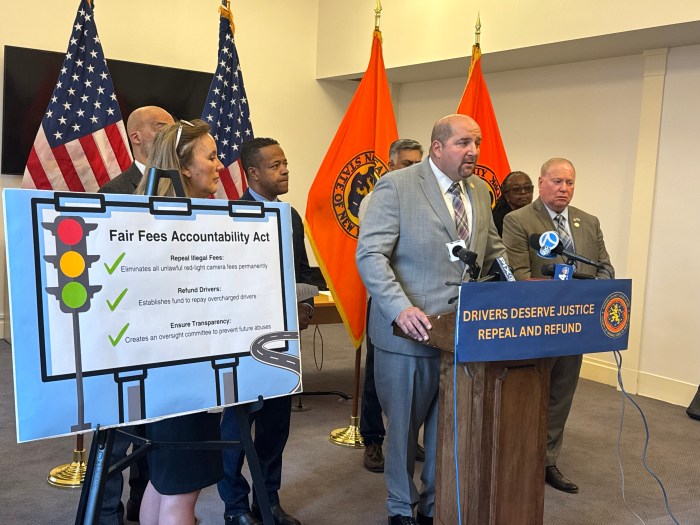Plainview resident Dr. Steven Frierman plays mind games.
Everyday, the Hofstra University professor employs his knowledge of sports and the study of the mind to help athletes stay focused, improve their performance and avoid slumps — or scratch and claw their way out of a slump, if necessary.
“The idea of working with athletes and teach them how to use their mind is profoundly fascinating to me,” said Frierman, who has lived in Plainview for 13 years. “What motivates them to achieve their goals and what stops them and how to get them to enjoy the process.”
Frierman is the sports psychologist and professor of Health Studies and Kinesiology at Hofstra University. He is also sport psychology editor of American Football Quarterly (AFQ) and on the board, which included professional football greats Bill Walsh and Gene Washington. He also served on the panel of experts which included NFL and collegiate football coaches and participated in two conferences for AFQ which provided continuing education credit for high school football coaches and worked with a few collegiate football players.
The professor, who has studied sports psychology for 22 years, authored Commit to be Fit: Now and Forever, and is currently writing a second book about performance enhancement strategies for sports and exercise. His research interests in sports include motivation, team dynamics, psychological momentum, performance enhancing substances, and performance enhancement strategies. In exercise, Frierman has focused on the barriers that stop individuals from exercising and living healthy as well as the strategies to overcome these barriers.
“Ninety-nine percent of practice time is spent on the physical aspects of sports,” he said. “No one focuses on the mental aspect because no one knows what to do. Coaches will say things like ‘relax, play in the zone,’ but how do we do that?”
Frierman works to help athletes find “the zone,” deal with mental mistakes, properly build team chemistry and create an “optimal arousal zone,” which refers to the frame of mind an athlete needs to find in order to achieve his or her ultimate goal on the field of play.
He said that when players are not performing up to their ability, it is probably because there is too much nonessential information crowding their psyche and compromising their ability to focus.
“Athletes are referred to me when there is nothing more the coach can do to help them; when it goes beyond the physical realm,” he said. “When athletes are performing at the top of their game, there is nothing in their mind — they are so focused that everything else gets filtered out. When they’re not playing well, there is something distracting them. So we work to kick out the thoughts that don’t belong there.”
Frierman employs anxiety management techniques and teaches concentration skills. He also teaches the athlete about team cohesion and how to accept one’s role on a team, as well as how to differentiate team goals from individual goals.
Team dynamics on any level of sports both important to performance and a complicated influence over performance for the athlete. Frierman spends time dissecting the psychological aspects of why bullying occurs in major sports leagues and the consequences of these harsh teammate-on-teammate actions.
When examining the recent story about a player on the Miami Dolphins leaving the team because of bullying he received from a teammate, Frierman said the alleged bully might have had good intentions, but the victim was not mentally prepared to handle the rigors of the professional football locker room atmosphere.
“Sometimes you have good intentions, but the outcome turns into a disaster,” he said. “I would never condone bullying in sports, it doesn’t belong in any game. But many athletes are told to do this, they are told to toughen the younger players up to get them to fit into a particular style of play. This this cause, it caused more damage than good, mainly because when dealing with behavior, athletes have to be educated.”
And that is where Frierman tries to have an impact. He believes it starts young when kids start playing youth sports. In that sporting world, he believes parents have a responsibility to cheer on their young players; fostering in them a love for activity and a healthy understanding of competition.
“When you ask kids the reason they play, they say because they want to have fun. And winning has nothing to do with having fun,” he said. “The parents job is to support the team. Cheer them on.”




























